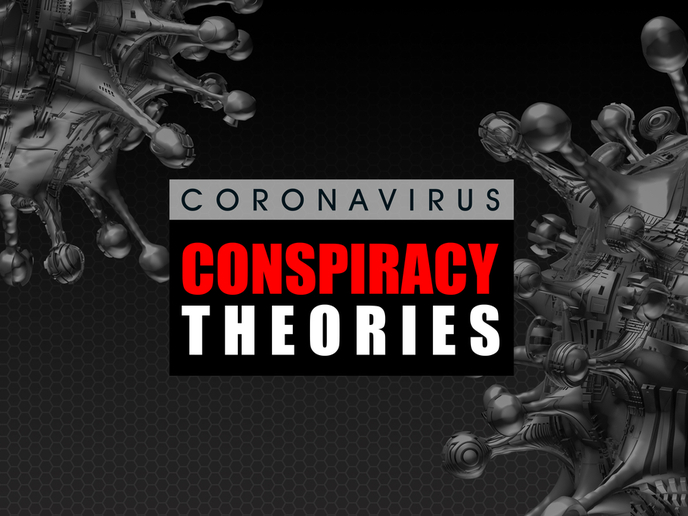TRENDING SCIENCE: Why COVID-19 conspiracy theories spread faster than the pandemic
The link between 5G and COVID-19 began circulating harmlessly, but flooded the mainstream media soon enough. According to a Pew Research Center report(opens in new window), almost a third of Americans believe COVID-19 was engineered by humans in a laboratory. Now, Bill Gates is the latest conspiracy theory target.
Debunking conspiracy theories
Viren Swami, a professor of social psychology at Anglia Ruskin University in the United Kingdom, explains the psychology behind these conspiracy theories and people’s belief in them. “One of the problems with understanding conspiracy theories is so many people believe in them,” Prof. Swami told the British newspaper ‘Express’(opens in new window). “We know they’re some things that make it more likely for people to believe, such as a reliance on more intuitive or emotional thinking. Mainly what we’re talking about is a lack of agency or control.” Prof. Swami explained that feelings of fear and a lack of support cause people to believe in the theories. “Generally, people who feel powerless, people who feel under threat, people who feel they have no control of what’s happening around them.” The explosion of social media and internet platforms is also fuelling all these theories. “But we also know specifically in terms of the coronavirus, that it’s spreading very rapidly,” he added. “There have been a couple of studies which have shown that you can map the spread of conspiracy theories about the coronavirus and they are spreading much more quickly than the actual virus itself.” Changing the mind of a conspiracy believer is practically hopeless: “No, near impossible, particularly if you’re a hardcore believer,” Prof. Swami continued. “They typically reject any evidence that doesn’t fit with their worldview and they only accept evidence that fits with pre-existing beliefs. They will reject anything and say mainly because I’m part of the conspiracy myself. They frame it in such a way that there is no possibility of having a debate. They get into this frame of mind, where they think people who are doing bad things are inherently evil and you don’t want to have a debate with someone who is evil, what you want to do is vanquish evil.”
Separating fact from fiction
Misinformation related to a public health crisis can be just as dangerous, especially when millions of people fall for unverified news. These people don’t intend to share bad information, it’s just that they do so unknowingly. “There’s evidence that more emotionally evocative content makes people less discerning,” David Rand, a Massachusetts Institute of Technology professor who researches misinformation, told ‘CNN’(opens in new window). “In particular, when people rely on intuition and emotion they are more likely to believe false claims. Statements, for example, that are scary make people less inclined to stop and think about it.” Now, more than ever, we as individuals have a key role to play in spreading correct information as part of the greater good. The means are there for us to do so on a massive scale. Spread the word about the European Commission’s dedicated page on fighting disinformation(opens in new window) and the World Health Organization’s myth busters(opens in new window) section.



